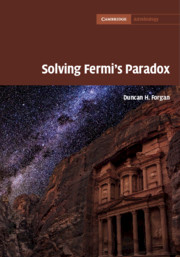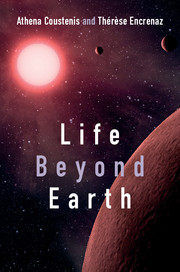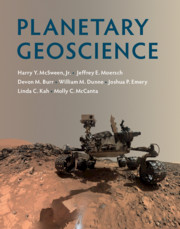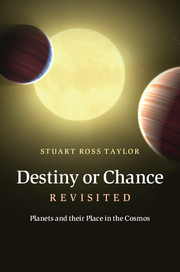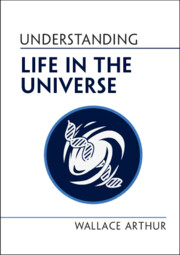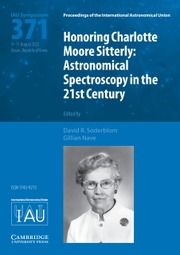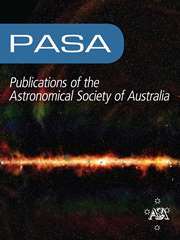Solving Fermi's Paradox
$176.00 ( ) USD
Part of Cambridge Astrobiology
- Author: Duncan H. Forgan, University of St Andrews, Scotland
- Date Published: April 2019
- availability: This ISBN is for an eBook version which is distributed on our behalf by a third party.
- format: Adobe eBook Reader
- isbn: 9781316730386
Find out more about Cambridge eBooks
$
176.00 USD
( )
Adobe eBook Reader
Other available formats:
Hardback
Looking for an examination copy?
If you are interested in the title for your course we can consider offering an examination copy. To register your interest please contact [email protected] providing details of the course you are teaching.
-
The search for extra-terrestrial intelligence (SETI) has for sixty years attempted to solve Fermi's paradox: if intelligent life is relatively common in the universe, where is everybody? Examining SETI through this lens, this volume summarises current thinking on the prevalence of intelligent life in the universe, and discusses sixty-six distinct solutions to the so-called paradox. It describes the methodology of SETI, and how many disciplines feed into the debate, from physics and biology, to philosophy and anthropology. The presented solutions are organised into three key groups: rare-Earth solutions, suggesting planetary habitability, life and intelligence are uncommon; catastrophist solutions, arguing civilisations do not survive long enough to make contact; and non-empirical solutions, those that take theoretical approaches, such as that our methodology is flawed. This comprehensive introduction to SETI concludes by looking at the future of the field and speculating on humanity's potential fate.
Read more- Lists solutions as well as mathematical formulations for interpreting them where appropriate
- Assimilates sixty years of research for those looking for a concise introduction
- Demonstrates how several distinct disciplines feed into the paradox, making it accessible to a wide audience
Reviews & endorsements
'If intelligent life is common in the Universe, where is everybody? In this comprehensive review, Duncan Forgan presents a range of possible solutions to this question, and in doing so covers a lot of ground on the topic of SETI (the Search for Extraterrestrial Intelligence). From the outset, Forgan recognizes that this topic demands a multi-disciplinary approach that encompasses 'all of human knowledge', and in particular, expertise not only in the ‘hard sciences’ but also in social sciences and the humanities.' Michael A. Garrett, The Observatory
Customer reviews
Not yet reviewed
Be the first to review
Review was not posted due to profanity
×Product details
- Date Published: April 2019
- format: Adobe eBook Reader
- isbn: 9781316730386
- contains: 72 b/w illus.
- availability: This ISBN is for an eBook version which is distributed on our behalf by a third party.
Table of Contents
Preface
Part I. Introduction:
1. Introducing the paradox
2. Fact A – the great silence
3. Classifying scenarios and solutions to the paradox
Part II. Rare Earth Solutions:
4. Habitable worlds are rare
5. Life is rare
6. Intelligence is rare
Part III. Catastrophist Solutions:
7. Doomsday arguments
8. Death by impact
9. Death by terrestrial disaster
10. Death by star
11. Death on a galactic scale?
12. Death by unsustainable growth
13. Death by self-induced environmental change
14. Self-destruction at the nanoscale
15. Artificial intelligence and the singularity
16. War
17. Societal collapse
Part IV. Uncommunicative Solutions:
18. Intelligent life is new
19. Exploration is imperfect
20. Probe exploration is dangerous
21. The aliens are quiet
22. They live too far away
23. The zoo/interdict hypothesis
24. The simulation hypothesis
25. They are already here
26. They were here long ago
Part V. Conclusions:
27. Solving Fermi's paradox
Appendix A. A database of solutions to Fermi's paradox
References
Index.
Sorry, this resource is locked
Please register or sign in to request access. If you are having problems accessing these resources please email [email protected]
Register Sign in» Proceed
You are now leaving the Cambridge University Press website. Your eBook purchase and download will be completed by our partner www.ebooks.com. Please see the permission section of the www.ebooks.com catalogue page for details of the print & copy limits on our eBooks.
Continue ×Are you sure you want to delete your account?
This cannot be undone.
Thank you for your feedback which will help us improve our service.
If you requested a response, we will make sure to get back to you shortly.
×
